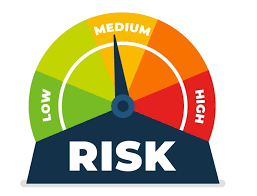Legal status of business and investment in countries with risky markets
Introduction
Investing in countries with risky markets has always been a subject of increased attention from international business. Risky markets are typically characterized by high levels of political and economic instability, which creates additional challenges for investors. However, these markets also offer great opportunities for high returns, making them attractive to entrepreneurs. In this context, it is important to consider the legal situation of business and investment in such countries to understand the main risks and ways to minimize them.
Key legal aspects
Political and economic stability
Political and economic stability are key factors that determine the legal position of businesses in countries with risky markets. Unstable governments, frequent changes in legislation, corruption and conflict can create significant impediments to the effective conduct of business. Investors should consider these factors when making investment decisions.
Protection of property rights
Protecting property rights is a fundamental aspect of any business. In countries with risky markets, there are often problems with legal protection of property, which can lead to expropriation or illegal seizure of assets. It is important for investors to evaluate the legal mechanisms for protecting property in such countries and the possibility of applying to international courts in case of violation of their rights.
Regulatory environment
The regulatory environment defines the rules and regulations that govern business activities. In countries with risky markets, the regulatory environment can be unpredictable and subject to frequent changes. It is important for investors to research local legislation to understand the requirements for business registration, licensing, taxation and other aspects of doing business. You may be interested in the following articles: legal advice, legal advice, analysis of documents, legal analysis of the situation, written advice, verification of documents by a lawyer, lawyers documents, online legal advice, online lawyer, legal opinion, legal opinion of a lawyer, lawyer online.
Corruption and bureaucracy
Corruption and bureaucracy are significant obstacles for businesses in risky markets. High levels of corruption can force companies to spend additional resources on "resolving issues" and risk violating the law. Bureaucratic obstacles can delay registration and obtaining necessary permits, which negatively affects business efficiency.
Tools to minimize risks
Diversification of investments
One way to reduce risks is to diversify investments. Investors can distribute their assets across different markets and industries to reduce the impact of negative factors in a particular market. This reduces the risk of losses and increases the stability of income.
Use of international agreements
Investors can take advantage of international agreements that provide investment protection. For example, bilateral investment treaties (BITs) provide legal guarantees to protect investors from expropriation and provide for recourse to international arbitration in the event of disputes.
Investment insurance
Investment insurance is another tool for minimizing risks. There are specialized insurance products that provide coverage for risks associated with political instability, expropriation, war, and other hazards. This allows investors to protect their assets and reduce financial losses.
Legal audit
Before making an investment, it is important to conduct a legal due diligence of the local legislation and regulatory environment.
This allows us to identify potential risks and ensure that they are properly taken into account in the investment strategy.
Finally, before making a decision to invest in a country with a risky market, it is important to consult with experts in law, finance and international relations;
Professional advisors can provide valuable advice on the legal environment, potential risks, and strategies to minimize losses.
Concluding remarks
Investing in countries with risky markets requires careful analysis and consideration of various legal aspects. Political and economic instability, property rights protection, regulatory environment, corruption and bureaucracy are just some of the factors that need to be considered when making an investment decision. However, with due diligence and appropriate risk mitigation strategies, investing in risky markets can be a source of significant income and success for entrepreneurs and investors.

































